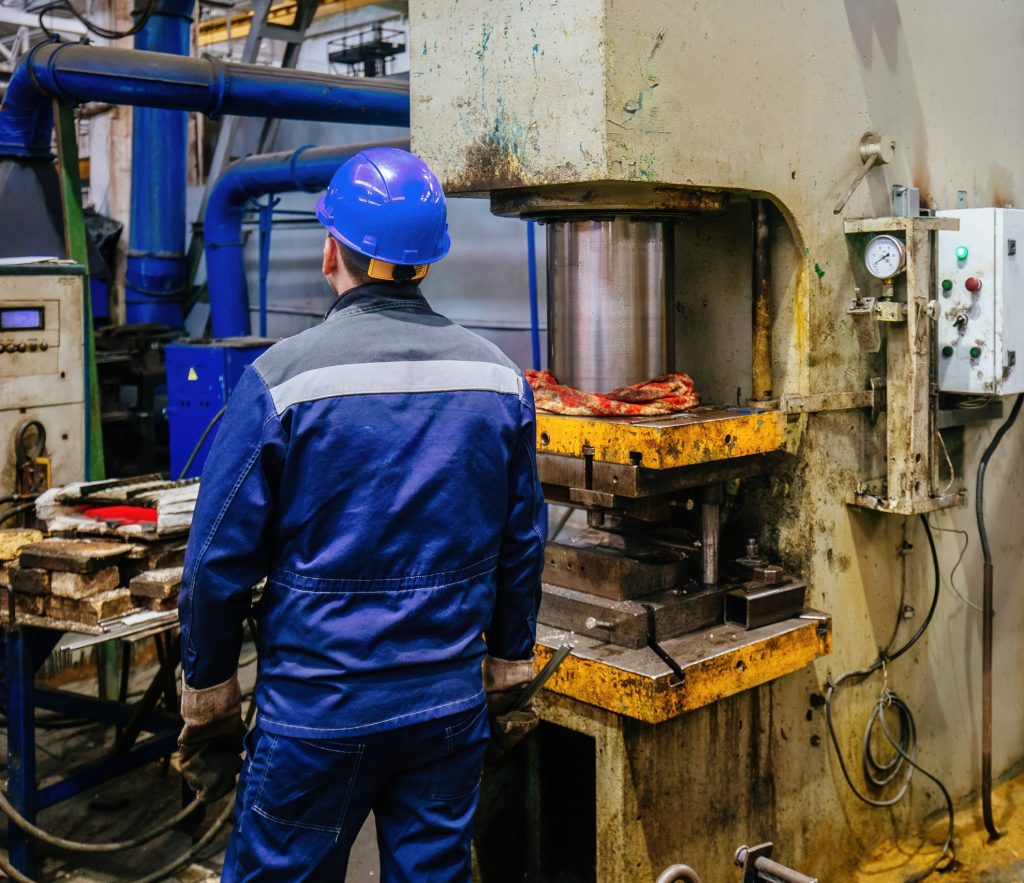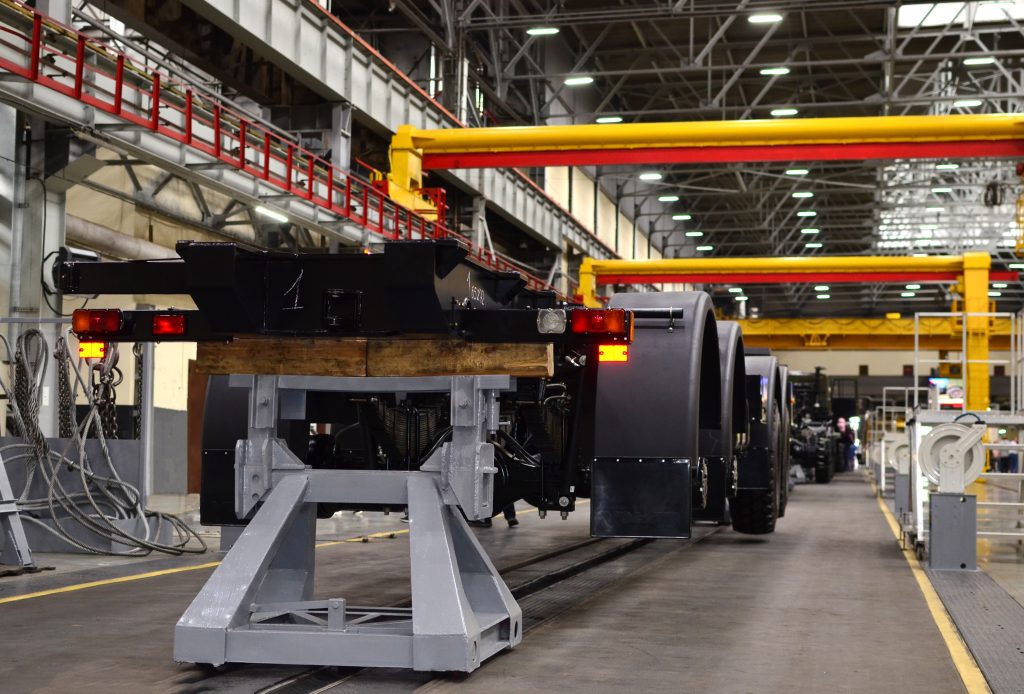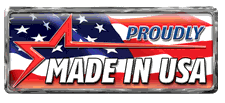TONNAGE

Understanding
Press Tonnage
- The press’ workload capability: This is the ability of the press to perform a task for a given duty cycle, which can be influenced by thickness, yield strength, and size of the material and the size, depth, and shape of the die. Generally, forming thicker and larger materials or parts requires higher tonnage.
- The safe operational limit of the press: Operating within the press’ specified tonnage capacity is critical to prevent damage to its components, preserve structural integrity, and ensure operator safety. Exceeding this limit increases the risk of failures and accidents.
Tonnage is the most critical specification of any press, indicating the maximum force it can safely exert to deform, shape, or cut materials. Every press has a maximum tonnage capacity, which indicates:
Find the Right Hydraulic Press for Your Needs
If you’re looking for the right hydraulic press for your operation, our experts at Magnum Press can help! Whether you’re calculating tonnage for specific applications or duty cycles, we’ll guide you through the specifics to ensure your press meets your exact needs.
Contact us for a personalized consultation and find the hydraulic press that meets your requirements.

Hydraulic Press Tonnages
6-ton hydraulic presses have a compact footprint and are quite versatile in their capability, making them ideal for smaller workshops and hobbyists. Available in bench and floor models, they can perform a variety of light-duty tasks, including assembly, blanking, coining, punching, riveting, pressing, shearing, staking, straightening, and trimming.
Best suited for thin materials and small-scale applications, these presses are compact and easy to integrate into limited spaces.
- Bending, pressing, and straightening small metal parts
- Assembly of small components and light stamping
- Punching small holes in metal sheets
12 Ton Press
- Perfect for shaping and finishing metal parts with precision and efficiency.
- Handle small to medium-sized forging projects with ease, ensuring consistent results.
- Streamline the assembly of medium-sized components with controlled force and accuracy.
- Tackle more substantial bending applications, such as forming sheet metal or structural components.
Designed for medium-sized workshops and industrial applications, 15-ton presses are available in bench and floor configurations, making them great additions to medium-sized workshops and industrial operations with limited space. They are designed for moderate-duty tasks like:
- Punching, shearing, and trimming metal parts
- Forging small to medium-sized metal parts
- Medium-sized component assembly
- More substantial bending tasks
20-Ton Press
- Medium-duty forging
- Assembly of medium-sized components
- Repetitive pressing and stamping operations
30 Ton Press
30-ton presses can perform a variety of moderate- to heavy-duty industrial applications. These include deep drawing, heavy stamping, forging and shaping medium-sized components, press-fitting large components, and supporting various assembly line tasks.
Magnum Press offers bench and floor models with 30-ton pressing capacity.
50-ton hydraulic presses are designed to perform heavy-duty tasks in large-scale manufacturing and industrial settings. Their capabilities include:
- Large-scale metal forming
- Large-scale forging
- High-force stamping
- Deep drawing and shaping large metal components
- Heavy-duty pressing and forming
100 Ton Press
100-ton presses are built for heavy-duty industrial applications, offering safe and efficient performance for large-scale or heavy-duty drawing, assembly, blanking, coining, forming, punching, riveting, staking, and trimming.
300 Ton Press
Choosing the Right Hydraulic Press
Intended Use
From light-duty tasks like staking and riveting to heavy-duty operations such as forging and deep drawing, each application demands a press with specific capabilities. Knowing your intended use for the press ensures efficient operations and consistent performance, while preventing overloading the equipment and unnecessary costs for unused capacity.
Required Tonnage
Determining the right tonnage for your press is crucial for optimal performance. Beyond knowing its application, factors such as material thickness, shear strength, yield strength, and forming area must be considered to accurately calculate the tonnage required. Don’t leave this critical calculation to guesswork - Magnum Press’ experts are here to help you determine the exact tonnage your operations demand.
Space Available
Whether your production operations are in a compact workshop or a large industrial facility, finding a press that fits your available space without disrupting workflow is essential. Magnum Press offers both bench and floor models designed to maximize efficiency while minimizing space requirements. For lighter applications, bench presses provide powerful performance in a compact design. For higher tonnage needs, we can help you plan your space to integrate floor presses seamlessly into your production area.
Budget
Determine how much you can afford for the initial investment and the costs of using and maintaining it for your operations before making a decision on a hydraulic press. Balancing initial cost with long-term value and expense is critical for ensuring the efficiency of your operations. This is the reason why Magnum Press designs its hydraulic presses for easy repair by using off-the-shelf components and designing our equipment to be accessible.
Magnum Press brings unparalleled expertise to every consultation, ensuring our clients get the right press for their unique operations.
Contact us today to consult with our team, and let’s find the perfect press that will enhance your productivity and efficiency.


